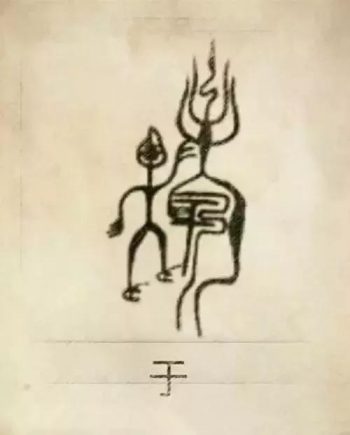The Yu(yú) surname is one of the oldest family names in China, with a history that dates back to the Shang and Zhou dynasties. For friends interested in Chinese culture, the story of the Yu surname offers a fascinating glimpse into the rich tapestry of Chinese history, migration, and cultural values.

Ⅰ、Origins of the Yu Surname
The Yu surname has multiple origins, reflecting the diverse cultural influences that shaped ancient China:
1. Take the country as the surname:
During the early Western Zhou Dynasty (around 1046–771 BCE), the second son of King Wu of Zhou was granted the territory of Yu in present-day Qinyang, Henan Province. His descendants adopted "Yu" as their surname, simplifying it from "邘" to "于",this is the primary origin of the Yu surname.
2. Name Change Due to Taboo:
During the Tang Dynasty, in order to avoid the name of Emperor Xianzong Li Chun, the double surname "Chun yu" was changed the single surname "Yu", and some descendants continued to use this surname.
3. Integration of Ethnic Groups:
During the Northern Wei Dynasty (386–534 CE), the Xianbei ethnic group, specifically the Wanniuyu clan, adopted the Han Chinese surname "Yu" as part of a broader cultural assimilation policy.
4. Minority Influences: Over time, other ethnic groups, such as the Daur, Oroqen, and Hui, also adopted the Yu surname, further enriching its history.
Ⅱ、Historical Figures:
1. Politics and Military:
Yu Qian : A Ming Dynasty hero who defended Beijing against Mongol invasions, celebrated for his integrity and courage.
Yu Chenglong: A Qing Dynasty official known as the "Number One Honest Official" for his incorruptibility and dedication to public service.
Yu Jin : A renowned general of the Three Kingdoms period, respected for his strict discipline.
2. Culture and Academia:
Yu Ji: A Taoist scholar of the Eastern Han Dynasty, the extant <Taiping Jing> has a profound influence。
Yu Shenxing : A Ming Dynasty historian and literary figure, known for his work <Dushi Manlu >(Random Notes on Reading History).
Yu Min: A modern physicist and key contributor to China's nuclear program, awarded the Medal of the Republic.
3.Social Leaders:
Yu Youren : A calligrapher, educator, and revolutionary during the Republic of China era.
Ⅲ、Cultural Significance:
1.Family Teachings:
The Yu Family Instructions, compiled during the Qing Dynasty, emphasize filial piety, humility, and diligence. These teachings have been passed down through generations, shaping the moral character of Yu descendants.
2.Ancestral Halls and Symbols:
The Yu family takes pride in ancestral halls and symbols such as the "Henan Hall" and "Loyalty Hall", which honor their roots and historical figures like Yu Qian.
Ⅳ、Social Impact:
1.Historical Contributions:
Yu descendants have played pivotal roles in defending the nation (e.g., Yu Qian) and advancing culture (e.g., Yu Shenxing).
2.Modern Influence:
Today, Yu individuals excel in diverse fields, including science (Yu Min), martial arts (Yu Cheng Hui), and philanthropy, embodying the family's values of loyalty, integrity, and diligence.
3.Global Presence:
During the Ming and Qing dynasties, some Yu families migrated to Southeast Asia. Today, overseas Yu descendants continue to promote Chinese culture worldwide.
Conclusion
The Yu surname is a microcosm of Chinese history, reflecting the resilience, adaptability, and cultural richness of the Chinese people. From its origins in ancient Henan to its global presence today, the Yu family has consistently upheld its values while contributing to society in meaningful ways. For those interested in Chinese heritage, the story of the Yu surname is a testament to the enduring power of family, tradition, and cultural identity.